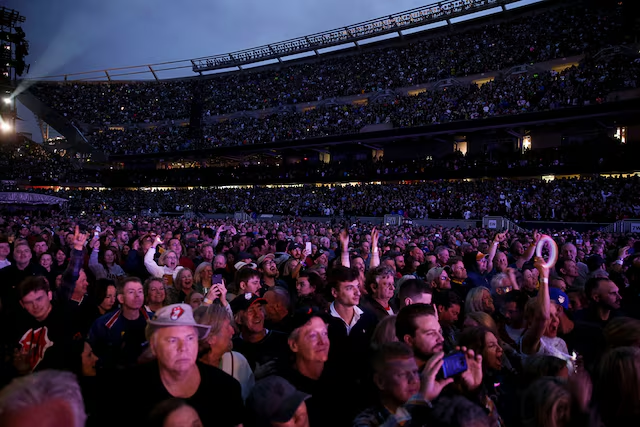Live Nation Entertainment (LYV.N), opens new tab is a company with few groupies, and the $22 billion venue owner and ticket seller can now add Uncle Sam to its list of detractors. The Department of Justice sued Live Nation on Thursday. It’s not obvious fans smarting from the sky-high cost of seeing their favorite musicians will end up any better off.
The promotion-to-ticketing behemoth was born from the 2010 merger of Live Nation and Ticketmaster, and from the get-go, trustbusters were worried. The government waved through the $2.5 billion deal with concessions, forcing Ticketmaster to divest one of its businesses and license some software to a rival, an arrangement that still holds.
Now top U.S. prosecutor Merrick Garland and 30 state and district attorneys general want to go the full hog, opens new tab, and force the companies asunder, if a jury agrees. Watchdogs claim the company has a chokehold on entertainment through its vertical structure including its ownership of over 265 clubs in North America such as the House of Blues chain, plus promotions arm and ticketing abilities.
It’s not just that Live Nation is big, per se. Garland’s competition cops claim it bullies competitors and punishes artists and venues for choosing other services. The result is that through layers of fees, the price of the ticket is higher than it should be. There’s also a side-bar complaint that those fees are poorly disclosed, leading to “shock and frustration” when fans see the final bill. In a blog post, opens new tab on Thursday, Live Nation called the lawsuit “absurd.”
Say Ticketmaster is hived off, opens new tab. Then what? There is no guarantee prices would lower. Ticketmaster accounts for 80% of all concert tickets sold, according to the complaint, the same market share, opens new tab as before its union with Live Nation. It also owns the ticketing software venues use for admissions, so switching suppliers is not simple. Artists like Taylor Swift also have a role in setting prices, which in her case can soar into the thousands of dollars.
Parts of the watchdog’s campaign might help, a bit. Ticketmaster forces venues to commit to years-long exclusivity agreements. In the UK, by contrast, venues will often parcel out tickets to competing ticketers, which can lower prices for fans. But that’s not a silver bullet either. Competing ticketers might end up just paying more to the venues, rather than charging Swifties less.
Live Nation shed nearly $2 billion of market value on Thursday. But it’s only a glancing blow. Since the Ticketmaster merger, the company’s stock has done twice as well as the S&P 500 Index (.SPX), opens new tab, despite griping from stakeholders and consumers. It can be rewarding sometimes rooting for the antihero.

CONTEXT NEWS
The U.S. Department of Justice and 30 state and district attorneys general filed a lawsuit on May 23 against Live Nation Entertainment alleging the $22 billion ticket and concert company thwarted competition across the live entertainment industry and is driving up prices.
The prosecutors want Live Nation to divest Ticketmaster. In 2010, the government approved the merger of Live Nation and Ticketmaster but with a set of conditions designed to prevent harming competition.
Live Nation Executive Vice President Dan Wall said in a blog post it was “absurd” to claim the company is wielding monopoly power because service charges on tickets are no higher than elsewhere.



